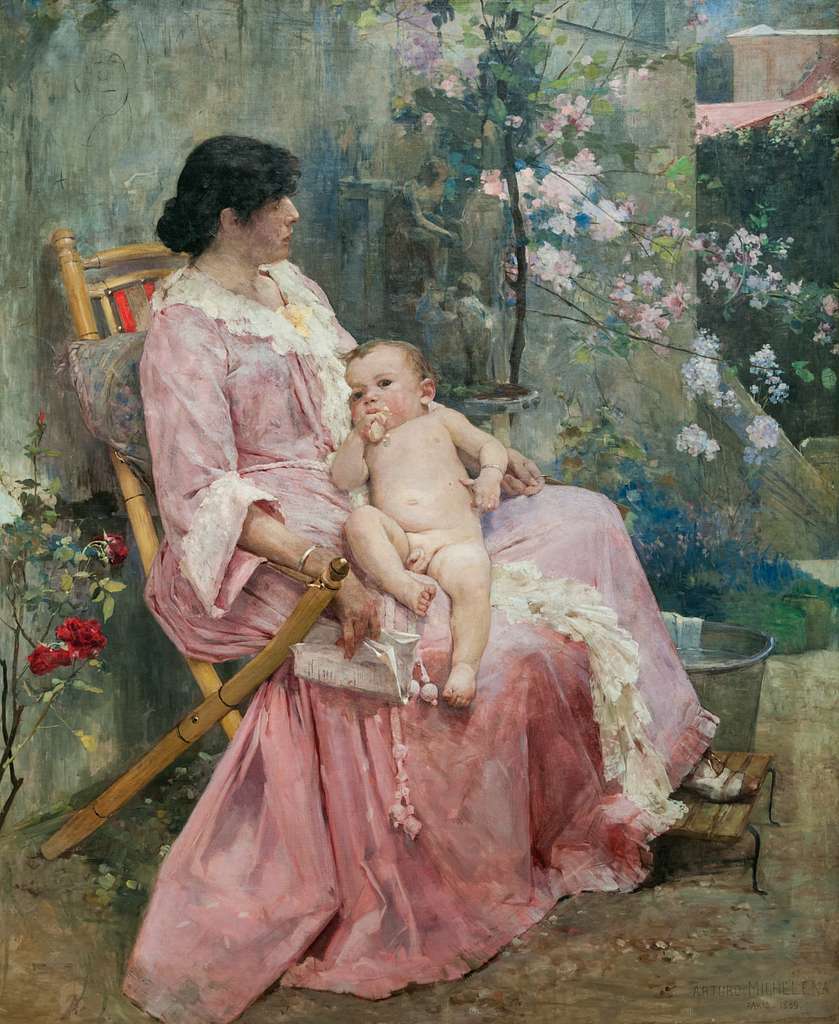Recently, the New York Times reported on a curious story about Snoo, a popular “smart” bassinet that sells for $1,700. “Happiest Baby, the company that makes Snoo, began charging for access to some of the bassinet’s premium features — features that used to be available to Snoo users indefinitely, at no extra cost. Now, access to the app needed to lock in the bassinet’s rocking level, to track the baby’s sleep and to use the so-called weaning mode, among other features, will cost parents $20 a month.”
The story focused on the outrage of Snoo parents, who felt betrayed when the bassinet, which rocked and shushed their babies to sleep, allowing the parents themselves to get sleep, stopped working. At the heart of the crisis was the question: What are parents supposed to do? Rock their kids themselves now?
While I can almost sympathize with sleep-deprived parents of newborns who are so desperate that they would pay $1,700 for a smart bassinet guaranteeing peaceful sleep for their children, I contend that both the existence of something like Snoo and the outrage of those who now feel betrayed by the company reveal something else that is more alarming about our society: we have lost any sort of basic comfort with the manual labor of caring for other people. At the same time, we are increasingly losing our minds to technology. The two are intertwined.
The work of parenting—from conception to pregnancy and childbirth to child-rearing—is very old, prehistoric even. Indeed, such is the work of care. To care for other people, especially young children, involves manual labor of the most basic sort—we hug, we gently wash, we change diapers, we comb hair, we clip nails, we kiss skinned knees and bandage them. We prepare food and, sometimes, spoon-feed it to a child. And then, of course, we also hold the child. Newborns love to be held, whether when awake or when asleep. This is also why in many cultures throughout world history, parents have worn their babies—in slings, in origami-style carriers, on boards strapped to their backs.
I am alarmed to see every aspect of parenting today, however, being relegated to an app that (advertisers promise) will make your life easier. In fact, the ads imply, you really can’t do something this difficult all by yourself, without technology’s assistance. It’s not the Stone Age, so act accordingly. And so, you can use an app to track your fertility to guarantee conception just when you want it. Other apps will take you through pregnancy. An app for labor will help—at least, until the epidural kicks in.
And then, of course, once you bring that baby home from the hospital, the Snoo will get her to sleep like a champ. It’s okay—have no fear when you’re not holding the baby. The baby monitor will keep an eye on her and beep at you if anything isn’t right. And then there are apps for breastfeeding, more apps for tracking baby’s bowel movements (since the pediatrician will ask you about those at every appointment). Once the baby begins preschool and moves to other activities, more apps will be required—for school notifications, for sports teams notifications, for checking the baby into nursery during church, and for various other mysterious things—all to the point where you think that someone or something out there may be trolling you. You just can’t quite figure out who.
Maybe, though, it’s you. At least, you allow yourself to get “trolled” in this manner by accepting all of the above, presented by fiat as just the way we now should parent and do life in the twenty-first century. Except, millennia of human history before this app-ification of parenting remind us that all of this is really not necessary. In fact, it makes parenting worse, not better, because it ignores the most fundamental aspect of it all: relationships.
Have you ever wondered: why are babies so fragile? Why are they so helpless—and so vocal in their outrage over this helplessness? Maybe this is the wrong question to ask, though. The longer we interact with real people of all ages, the more clearly we see the truth that while most adults do not look obviously fragile the way babies do, we all retain in us these traces of helplessness with which we were born. We are vulnerable and finite; it’s a feature, not a bug, of our nature as God’s creations, made in God’s image but most assuredly not gods ourselves.
From conception to birth, when the baby relies on her mother’s body to grow, to the years after birth, when our children rely on us to take care of them, to old age, when the elderly rely on their own children and others in turn to take care of them again—and every stage in-between—we cannot survive alone. Leaving aside the practical care that we need at various stages, let’s not forget that even in the most ordinary and healthy of days, the care of others brings us joy, delight, and assurance of the love that others have for us. This is why we light up when we walk into the house in the evening after a long day to be greeted with a hug and dinner.
And this brings us back to rocking babies. Babies love to be rocked because it reminds them of the womb—of the days when they simply were held in a tight embrace, in a fairly dark and peaceful environment, protected from the harsh sights and sounds of this outside world, now overrun more by the pinging of technology than the songs of birds.
But there is something else that happens, which science is only beginning to understand. Rocking babies, shushing at them, and all the other things that people have instinctively known to do for millennia—things that creations like Snoo now try to replicate—are not just ways to get the baby to sleep (and thereby give us a chance to rest or sleep too). Rather, they serve critical functions in providing for healthy brain development. Specifically, “The developing brain needs two basics—safety and positive experiences.” While technology could, perhaps, provide safety in that cold, sterile way—the baby in Snoo, for instance, is strapped in very safely—it cannot provide “positive experiences.” Only interactions with live people can offer those.
This means that the work of care that we do for others, including babies, is about much more than just performing the tasks. It’s about the affirmation of human worth and dignity—a reminder through each act of care that yes, little one, this world feels strange and loud and scary, but your parents hold you and love you. And it’s a reminder, whenever you bring dinner to a friend who is suffering in some way, that others see the suffering and care.
In an iconic scene from the 1936 film “Modern Times,” a feeding machine feeds a meal to a character that Charlie Chaplin plays. First his head is strapped securely to a stand. Next, the machine gently tips soup into his mouth and feeds him some appetizer bites, one at a time. And then we get to the buttered corn on the cob. A short circuit results in a malfunction, so instead of being gently offered his meal, the eater is repeatedly hit in the teeth with the corn. An attempt to fix the machine and restart the meal only results in more malfunctions, as the machine begins dumping bowls of soup and stuffing food into the face and lap of its victim.
This admittedly comical scene is not intended to reflect reality. And yet, the casual cruelty and disrespect of the person for whom the machine ostensibly means to care exemplifies well the problems we can see in the latest advances in “smart” items of care, including bassinets. A machine can feed the baby—or an adult. A machine can read books out loud to the baby. A machine can rock the baby to sleep. Smart devices and apps can do these and many other things. But they can do none of them in love.
Image Credit: Arturo Michelena, “The Young Mother” (1889) via Picryl







3 comments
raitchi2
Yeah. I have to disagree with the bulk of this. Sure apps will not fix everything, but there is a ton that they help with (even just simple tracking). It was incredibly helpful with my son to help him sleep and even to graphically see where we were having the most issues with concrete data going back months (mid morning naps were his worst thankfully).
I think the author fails to judge where the average parent is with a lot of this stuff. Some are great and know their kids backwards and forwards and could tell you the total number of wet diapers per day. However, in my clinical practice many have issues recalling things like this.
Rob G
I think the question may be asked as to what in our culture has brought “the average parent” to the point where they need such technophilic monstrosities to augment their child-rearing in the first place. These sorts of things seem to me to be perfect examples of luxuries becoming conveniences and conveniences becoming necessities, all by design.
Glynn
Thirty-five years ago, our newborn youngest child simply didn’t sleep. He had massive colic, and he was wearing himself and his parents out – for months. Nothing worked, including rocking him. It went on for months. Even the doctor was worried that he wouldn’t grow out of it. We discovered a company that manufactured “Sleep-Tite,” a small, vibrating motor you could affix to the bottom of the baby bed and turn on for an hour at a time, along with a sound box that imitated the sound of a car at 55 miles an hour. It worked, allowed the baby to sleep, and saved our sanity.
Comments are closed.